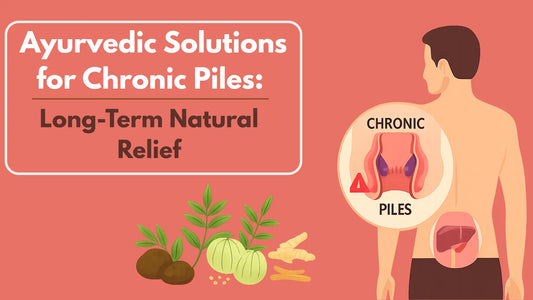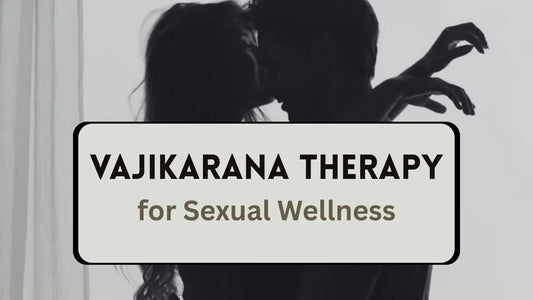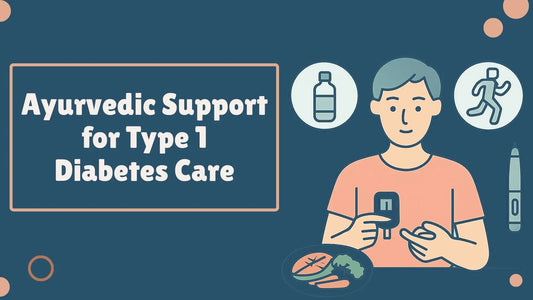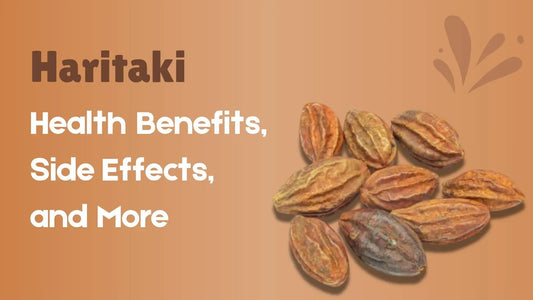
நாள்பட்ட மூல நோய்க்கான ஆயுர்வேதத் தீர்வுகள்: நிரந்தர இயற்கை நிவாரணம்
நிலையான பைல்ஸ் (Chronic Piles) மிகவும் கொடுமையானதும் அசௌகரியமாகவும் இருக்கலாம். நீங்களும் மாதங்கள் அல்லது வருடங்களாக பைல்ஸில் சிக்கிக்கொண்டிருக்கிறீர்கள் என்றால், அதுடன் வாழ்வது எவ்வளவு கஷ்டமென நினைத்திருப்பீர்கள். கதிர்ச்சி, வீக்கம் மற்றும் இரத்தப்போக்கு மலப்பிரசவத்தை சிரமமாக்குகின்றன.
பல மருந்துகள் தற்காலிக நிவாரணத்தைத் தரலாம், ஆனால் நீண்டகாலத் தாங்குதலுக்காக ஆயுர்வேதம் மிகப் பிரபலமான தேர்வாக இருக்கும் — அது மூல காரணத்தை சிகிச்சை செய்து முழுமையான மற்றும் நீண்டகால குணமடிப்பை ஊக்குவிக்கிறது. இங்கே நாம் உங்கள் பயணத்தில் பயன்படுத்தக்கூடிய சில ஆயுர்வேத வழிகளை கொடுத்துள்ளோம்.
ஆயுர்வேதத்தின் பார்வையில் நிலையான பைல்ஸை (Chronic Piles) அறிவோம்
ஆயுர்வேதி ஞானப்படி, பைல்ஸ் “அர்ஷ” என்று அழைக்கப்படுகின்றன, இதை வாத்து, பித்த மற்றும் கபா தோஷங்களின் அசமநிலையே ஏற்படுத்துகின்றது. ஒவ்வொரு தோஷமும் இதைப் பின்வருமாறு செய்கிறது:
- வாத்து: எறுமை மற்றும் மலச்சிக்கல் (dryness and constipation).
- பித்த: எரிப்பு மற்றும் இரத்தப்போக்கு (inflammation and bleeding).
- கபா: வீக்கம் மற்றும் எடுப்புமிக்க தன்மை (swelling and heaviness).
இதனால், இந்த மூன்று தோஷங்களும் கலக்கும் பொழுது அனல் பகுதிக்குப்பரபரப்பாக உள்ள வெயின்களில் (veins) தொந்தரவு ஏற்பட்டு, அனஸ் பகுதியில் ஒரு ஊட்டை போன்ற உணர்வு ஏற்படும்.
ஆயுர்வேதத்தில் நோக்கம் வெறுமையாக வீக்கத்தை குறிப்பதில் மட்டும் அல்ல; ஜீரண ஆரோக்கியத்தை மீட்டெடுத்தல், மெட்டபாலிசத்தை (metabolism/Agni) மேம்படுத்துதல் மற்றும் ரெக்டல் வெயின்களை இயற்கையாக பலப்படுத்துதல் ஆகியவையே முக்கியம்.
பைல்ஸ் எதனால் நிலையானதாக மாறுகிறது?
பைல்ஸ் எளிதில் குணமடையாத சில பொதுவான காரணங்கள் உள்ளன:
- போது மலச்செலுத்தும்போது அதிகப்படியான திணறல் (straining during bowel movements)
- உங்கள் உணவில் நார் (fiber) மற்றும் தண்ணீர் குறைவாக இருப்பது
- நீண்ட நேரம் உட்கார்ந்திருத்தல்
- அசாதாரண மலவரிசைகள் (irregular bowel habits)
- ஆரம்ப அறிகுறிகளை 무க்காய்த் பார்த்தல் (ignoring the initial symptoms)
ஆயுர்வேதம் கூறுவது: அக்கி (Agni — ஜீரண நெருப்பு) பலவீனமானபோது மற்றும் அமா (Ama — உடலில் தேங்கி கிடக்கும் நச்சு) சேரும்போது, அவை ரெக்டம் நரம்புகளை சவர்க்கி (irritate) செய்து நிலையான வீக்கம் அல்லது எரிப்பை ஏற்படுத்தும் — இது chronic/recurring piles-ன் மூல காரணமாகும்.
நிலையான பைல்ஸையும் அறிகுறிகளையும் சிகிச்சை செய்ய ஆயுர்வேத வழிகள்
பல ஆலோபதிக் (allopathic) மருந்துகள் இருந்தாலும், நிலையான பைல்ஸிலிருந்து நீண்டகால மீட்பு பெற மக்கள் ஆயுர்வேதத்தை தேர்ந்தெடுக்கிறார்கள். பின்வரும் முறைகள் உங்களுக்கும் உதவக்கூடும்:
1. டிடாக்ஸ் சிகிச்சைகள் (Shodhana Chikitsa)
டிடாக்ஸிஃபிகேஷன் (detox) சிகிச்சைகள் உடலின் அனைத்து தோஷங்களையும் சமநிலைப்படுத்த முக்கிய பங்கு வகிக்கின்றன. இது தீங்கு செய்யும் நச்சுகளை வெளியேற்றுவது மற்றும் நீண்டகாலமாக நிலையான பைல்ஸ் இலிருந்து உங்களுக்கு விடுதலை கொடுப்பதைக் குறிக்கிறது:
a) கசாரா கர்மா (Kshara Karma)
அறுவைச்சிகிச்சையைத் தொடர்ந்தல்லாத ஆயுர்வேத அணுகுமுறை இது; ஆணியமுள்ள மூலிகை ஆதாரமான ஆல்கலின் (alkaline) பேஸ்டைப் பயன்படுத்தி அனஸ் சுற்றியுள்ள பாதகமான திசுக்களை நீக்க இது பயன்படுத்தப்படுகிறது. PMC ஆய்வு கூறுவது இது உள் பைல்ஸை (internal piles) இயற்கையாக குணப்படுத்த உதவக்கூடும் மற்றும் அறுவை சிகிச்சை அல்லது மருந்துகளின் அவசியத்தை குறைத்துக் கொள்ள முடியும் என்று சொல்கிறது.
b) கசாரா சுத்திரா சிகிச்சை (Kshara Sutra Therapy)
இந்த சிகிச்சையின் போது புண்கள் மற்றும் பிஸ்துலாவை குணப்படுத்த மருந்துச் சார்ந்த தந்தை (medicated thread) பயன்படுத்தப்படுகிறது. ஆயுர்வேத மருத்துவர் அந்த நுண்ணறைக்குரிய தந்தையை பாதிக்கப்பட்ட பகுதியில் பொருத்தி இரத்த ஓட்டத்தையும் கட்டுப்படுத்து, பாதிக்கப்பட்ட திசுவைப் உடுத்தி நீக்கப்பட வரவைக்குச் செய்கின்றார்.
c) விரேசன (Virechana — Therapeutic Purgation)
இது ஒரு சுத்திகரிப்பு (purification) செயல்முறை; இது அதிகமான பித்தை அகற்றி (removes superfluous Pitta), சோம்பலான நீரிழிவு மற்றும் எரிப்பை குறைத்து, உடலை நாசான பூதங்களை சுத்தம் செய்து தோஷ சமநிலையை மீட்டெடுத்துக் கொடுக்கும் — இதனால் முழு ஜீரண ஆரோக்கியம் மேம்படும்.
d) பஸ்தி (Basti — Medicated Enema)
பஸ்தி என்பது வாத்து தோஷ அசமநிலையால் ஏற்படும் பைல்ஸ் சிகிச்சைக்கு பயன்படும் ஆயுர்வேத אנெமா சிகிச்சை. இது பஞ்சகர்மாவின் ஒரு முக்கிய பகுதி; இதில் மூலிகை எண்ணெய்கள் அல்லது தவிட்டிகள் (decoctions) காசருக்குள் ஊற்றப்படுகின்றன, இதனால் குடலை சுத்தப்படுத்தி மலச்செய்தலை எளிதாக்கி வலி, வீக்கம் மற்றும் இரத்தப்போக்கை குறைக்க உதவுகிறது.
2. உட்புற ஆயுர்வேத மருந்துகள் (Internal Ayurvedic Medicines)
நீண்டகால நிவாரணத்துக்காக நீங்கள் முயற்சிக்கக்கூடிய சில பயனுள்ள ஆயுர்வேத அணுகுமுறைகள் இவை:
- Triphala Churna: Triphala குடலை டிடாக்ஸ் செய்து, மதமான படலங்களை மென்மையாக்கி, மலச்சிக்கலை குறைக்க உதவுகிறது.
- Abhayarishta: ஒரு திரவ டானிக், இது மலச்செய்தலை மற்றும் ஜீரணத்தை மேம்படுத்தும்.
- Kankayan Vati: வீக்கத்தை குறைத்து உள் பைல்ஸில் குணமடைய உதவுகிறது.
- Arshoghni Vati: வலி, இரத்தப்போக்கு மற்றும் எரிச்சலைக் குறைக்கிறது.
- Haritaki: ஒரு இயற்கை லேக்ஸடிவ் (laxative) — கடினமான மலங்களைப் தடுக்கும்.
3. புற ஆயுர்வேத சிகிச்சைகள் (Bahya Chikitsa)
மீறான உடனடி நிவாரணம் பெற, இந்த புற ஆயுர்வேத சிகிச்சைகளை முயற்சிக்கவும்:
a) சிட்ஸ் பா் (Sitz Bath / Avagaha Sweda)
அனல் பகுதியில் திரிபலம் (Triphala) அல்லது வேம்பு (Neem) தவிட்டியை கலத்த வெந்நீரில் இழுப்பது வலி, கத்திர்ச்சி மற்றும் வீக்கத்திற்கு விரைவான நிவாரணத்தை தரும். வெதுவெதுப்பான நீர் இரத்த ஓட்டத்தை மேம்படுத்தி, ஈர்ப்பு மற்றும் மெல்லிய கொள்கைகளை அமைத்துக் கொடுக்கும்.
ஆனால், இந்த முறை சற்றும் தற்காலிக ஆறுதலை மட்டும் தரும். நீண்டகால குணத்திற்கு இதை மற்ற ஆயுர்வேத மருந்துகளுடன் மற்றும் வாழ்க்கை முறை மாற்றங்களோடு சேர்த்து பயன்படுத்த வேண்டும்.
b) மூலிகை எண்ணெய்கள் மற்றும் பேஸ்டுகள்
மார்க்கெட்டில் கிடைக்கும் இயற்கை மூலிகை எண்ணெய்கள் மற்றும் பேஸ்டுகள் பாதிக்கப்பட்ட பகுதியில் பயன்படுத்தி பைல்ஸ் அறிகுறிகளை குறைக்க உதவுகின்றன. குறிப்பாக மஞ்சள், வேம்பு மற்றும் ஆலோவேரா போன்ற மூலிகைகள் எதிர்இறத்தல் (anti-inflammatory) பண்புகளை பெற்றுள்ளன; அவை இயற்கையாக பைல்ஸை அமைத்துக் குணப்படுத்த உதவுகின்றன.
4. ஆயுர்வேத உணவுத்திட்ட பரிந்துரைகள் (Ahara Chikitsa)
உணவுத்திட்டத்தில் அதிகநார் (high fiber) சேர்ப்பது மலச்சிக்கல் போன்ற பிரச்சனைகளை தடுக்கும்; இவை மலச்செய்தியை சிரமமில்லாமல் ஆக்கி சிரமத்தை குறைக்கும். MedlinePlus ஆய்வு முழுதானியங்கள், تازா பழங்கள், காய்கறிகள், முத்திரோடு தயிர் மற்றும் ஃபிளாக்ஸ்க் விதைகள் போன்றவற்றை சாப்பிட பரிந்துரைக்கிறது.
தவிர்க்க: காரமான, வறுத்த அல்லது எண்ணெய் அதிகமான உணவுகள்; சிவப்பு சிக்கன்/என் மதிப்பு (red meat); மது; செயலாக்கப்பட்ட உணவுகள்; காபீன்; வெள்ளை பிஸ்தா (white flour); மற்றும் நுனைசர்க்கரை — இவையெல்லாம் உங்கள் பைல்ஸை மோசப்படுத்தலாம்.
5. வாழ்க்கைச் சீரும் யோகா பயிற்சிகளும் (Vihara Chikitsa)
உயிரியல் வாழ்க்கை முறைகள் உங்கள் பைல்ஸ் மற்றும் பிற நிலைகளில் பெரிய மாற்றத்தை கொண்டு வரும். அவைகளைத் தவிர்க்க, சில எளிய ஆரோக்கிய பழக்கங்களை பின்பற்ற வேண்டும்: நீண்ட நேரம் உட்காராமை, இயல்பு மலச்செலுத்தலை தடுத்துக் கொள்ளாமை, மற்றும் உடற்பயிற்சிகள் அல்லது யோகா மூலம் சுறுசுறுப்பாக இருக்குதல்.
பைல்ஸுக்கு பொருத்தமான யோக ஆசனங்கள்:
- மலாசனம் (Malasana): இது டிடாக்ஸியாகவும் செயல்பட்டு, ஜீரணவத்தின் ஆதரவாகவும் வேலை செய்கிறது; இதன் மூலம் மழும்பு பணி எளிதாகும்.
- பவனமுக்தாசனம் (Pavanamuktasana): குடலில் சிக்கிக்கிடக்கும் வாயுவை வெளியேற்ற இது உதவுகிறது; அதனால் மலச்சிக்கலும் வீக்கமும் குறைகிறது.
- விபரீத கரணி (Viparita Karani): இரத்த ஓட்டத்திற்கு பயனாகவும் அனல் பகுதியில் அழுத்தத்தை குறைப்பதிலும் உதவும்.
-
சರ್ವாங்காசனம் (Sarvangasana): இது சிறந்த யோகா ஆசனமாக கருதப்படுகிறது; வெயின் அழுத்தத்தை குறைத்து குணமடைவதை வேகம் செய்ய உதவுகிறது.
எப்போது மருத்துவரை அணுக வேண்டும்
உங்களுக்கு கூர்மையான வலி, தொடர்ந்து இரத்தப்போக்கு, அல்லது ஆயுர்வேத சிகிச்சைக்கு பிறகும் குணமடையாத முட்டைகள் உள்ளன என்றால் — ஆயுர்வேத நிபுணரை அல்லது ஒரு ப்ராக்டோலஜிஸ்டை (proctologist) பார்க்க பரிந்துரைக்கப்படுகிறது.
நிலையான பைல்ஸை புறக்கணித்தால் தொற்று அல்லது இரத்தக்குறைபாடு (anemia) போன்ற சிக்கல்கள் ஏற்படக்கூடும். சரியான கண்டறிதல் மற்றும் பாதுகாப்பான சிகிச்சைக்காக நம்பகமான மருத்துவ பரிசோதனைகள் எடுக்குவது சிறந்த வழி.
முடிவு
நிலையான பைல்ஸுக்கு ஆயுர்வேத சிகிச்சை பிரதானமாக தோஷங்களை சமநிலைப்படுத்துவதை நோக்கமாகக் கொண்டுள்ளது. இது அடிப்படை காரணங்களைப் புலப்படுத்தி சிகிச்சை செய்வதால், தற்காலிக நிவாரணத்தை விட விரிவான மற்றும் நிலையான தீர்வுகளை வழங்குகிறது.
மேலே உள்ள வழிமுறைகள் மற்றும் சிகிச்சைகள் இயற்கையான குணமடிப்பை ஊக்குவித்து மீண்டும் நிகழ்ச்சிகளின் வாய்ப்பை குறைக்கும். நீடித்த பலனுக்காக உங்கள் மருத்துவரிடம் ஆலோசனை பெற பரிந்துரைக்கப்படுகிறது.
References
- Mehra R, Makhija R, Vyas N. (2011). A clinical study on the role of Ksara Vasti and Triphala Guggulu in Raktarsha (Bleeding piles). Ayu, 32(2), 192–195. https://doi.org/10.4103/0974-8520.92572
- Ravindranath GG, Rahul BG. (2018). Prevalence and risk factors of hemorrhoids: a study in a semi-urban centre. Int Surg J, 5(2), 496–499. https://doi.org/10.18203/2349-2902.isj20180339
- Johanson JF, Sonnenberg A. (1990). The prevalence of hemorrhoids and chronic constipation: An epidemiologic study. Gastroenterology, 98(2), 380–386. https://doi.org/10.1016/0016-5085(90)90828-O

Dr. Pooja Verma
Dr. Pooja Verma is a sincere General Ayurvedic Physician who holds a BAMS degree with an interest in healing people holistically. She makes tailor-made treatment plans for a patient based on the blend of Ayurveda and modern science. She specializes in the treatment of diabetes, joint pains, arthritis, piles, and age-related mobility issues.



